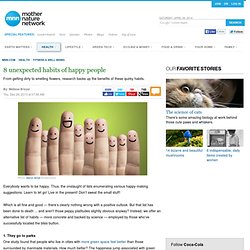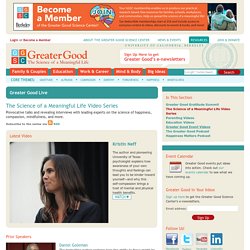

New Harvard Research Reveals A Fun Way To Be More Successful. We all want to be more successful.

But everything you read probably sounds like a lot of work. Isn’t there a scientifically proven method that’s a little more… fun? There is. Shawn Achor is the bestselling author of The Happiness Advantage and for years at Harvard he studied exactly that: happiness. He gave an extremely popular (and, in my opinion, the all-time funniest) TED talk. And his ideas even attracted the attention of Oprah Winfrey, who filmed an interview with him.
What’s so special about Shawn’s work? He did what a lot of researchers never do: instead of scrubbing the freak outliers from the data he aggressively studied them. He wanted to know what people with happiness superpowers do that we don’t. Here’s Shawn: Instead of deleting those people that are weirdos in the data what we do is we intentionally study them. Shawn believes (and his research shows) that you can do things to be happier. I gave Shawn a call to find out what he’s learned. 1) Success Brings Happiness? Sum Up Tags: For Some, ’Tis a Gift to Be Simple. 100happydays. 22 Habits of Unhappy People. Comments.

22 Habits of Unhappy People. How to Be Happier At Work - Habits of Happy People. 8 unexpected habits of happy people. Everybody wants to be happy.

Thus, the onslaught of lists enumerating various happy-making suggestions: Learn to let go! Live in the present! Don’t sweat the small stuff! Which is all fine and good — there’s clearly nothing wrong with a positive outlook. But that list has been done to death ... and aren't those peppy platitudes slightly obvious anyway? 1. One study found that people who live in cities with more green space feel better than those surrounded by manmade materials. 2. Okay, so your place of residence may not be a habit so much as a circumstance, but this is interesting. 3. Huh? 4. It’s no surprise that workers who are happy with their work are happy with their lives. 5. No, this isn’t an homage to the “stop and smell the roses” cliché; it’s not about taking time for the delights in your life (although stopping and smelling the roses is a grand thing to do). Happiness is Contagious. 22 Habits Of Happy People. By Dr Mercola Many people spend their lives waiting to be happy.

You may think, “if only I had more money,” or “could lose weight,” or you fill in the blank, then I would be happy.Well here’s a secret: you can be happy right now. It’s not always easy, but you can choose to be happy, and in the vast majority of circumstances there’s no one who can stop you except for yourself. The truth is, happiness doesn’t come from wealth, perfect looks or even a perfect relationship. Happiness comes from within. 22 Positive Habits of Happy People What’s the secret to being happy? The featured article compiled 22 such behaviors that you can use to enhance your life and your happiness. 1. Forgiving and forgetting is necessary for your own happiness, as holding a grudge means you’re also holding onto resentment, anger, hurt and other negative emotions that are standing in the way of your own happiness. Practical Happiness & Awesomeness Advice That Works. The Science of a Meaningful Life Video Series.
Daniel Goleman The bestselling author explores how the ability to focus might be the hidden driver of excellence.

Watch Robert McClure The mental health leader explores how mindfulness can help sustain compassion in health care workers. Rhonda Magee Rhonda Magee, JD, is Professor of Law and Co-Director of the Center for Teaching Excellence at the University of San Francisco. Nancy Bardacke The founding director of the Mindfulness-Based Childbirth and Parenting Program explains why mindfulness can mitigate the stress and pain of childbirth for both women and men. Shauna Shapiro The author and Santa Clara University professor explains why mindfulness-based therapies work to develop compassion. Emiliana Simon-Thomas The science director of the Greater Good Science Center explores the neuroscience of mindfulness and compassion.
Paul Gilbert Author and therapist Paul Gilbert explores how awareness of how our own minds work can help break negative thought patterns and help us to become more compassionate.